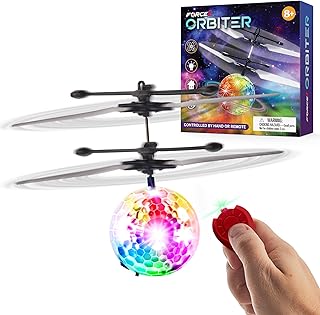Force1 Drone: Legal Considerations and Regulations
The legal and regulatory landscape surrounding drones, including the Force1 Drone, is complex and constantly evolving. It's crucial to understand the regulations applicable to your specific use case to avoid legal issues.
Here are some key considerations and general guidelines:
1. Federal Regulations (FAA in the US):
* Registration: Most drones weighing over 0.55 pounds (250 grams) must be registered with the FAA.
* Pilot Certification: Depending on the intended use, you might need a Remote Pilot Certificate (Part 107) from the FAA to operate a drone. This certificate involves passing an exam and undergoing background checks.
* Operating Restrictions: The FAA has established rules regarding where and how drones can be flown, including:
* No flying over people: Except for specific exceptions like public safety or infrastructure inspections.
* Stay within visual line of sight: You should always be able to see your drone.
* Altitude Limits: Generally, you can't fly above 400 feet.
* Specific airspace restrictions: Drones cannot operate in areas like airports, stadiums, or other restricted airspace.
* Compliance with Safety Guidelines: The FAA has safety guidelines for drone operations, including maintaining a safe distance from other aircraft and ensuring the drone is in a safe condition.
2. State and Local Regulations:
* State laws: States can have their own regulations regarding drone use, so you should check the regulations in your specific state.
* Local ordinances: Cities and counties may have additional restrictions or requirements regarding drone use.
3. Privacy Considerations:
* Data Collection and Use: Drones can collect data including images and videos, raising privacy concerns. Ensure you are aware of and complying with privacy laws.
* Informed Consent: You may need to obtain informed consent from individuals before capturing images or videos of them.
* Third-Party Data Sharing: Be cautious about sharing drone footage or data with third parties as it could violate privacy laws.
4. Specific Use Cases:
* Commercial Operations: Commercial drone use (e.g., aerial photography, inspections) requires additional permits and licenses.
* Public Safety and Law Enforcement: Law enforcement agencies have specific regulations and protocols for drone use.
* Recreational Use: Recreational drone use is generally less regulated, but it's important to be aware of the FAA guidelines and local regulations.
5. International Regulations:
* International laws and regulations: Many countries have their own regulations regarding drone use.
* Cross-border operations: You should be aware of the regulations in the countries where you plan to fly a drone.
Resources:
* FAA website: [https://www.faa.gov/uas](https://www.faa.gov/uas)
* Drone Safety website: [https://www.faa.gov/uas/media/Drone_Safety_Tips.pdf](https://www.faa.gov/uas/media/Drone_Safety_Tips.pdf)
* State drone regulations: [https://www.drones.law/](https://www.drones.law/)
* Local ordinances: Check with your city or county government.
Disclaimer: This information is for general knowledge and is not legal advice. It is important to consult with legal professionals and relevant regulatory bodies for specific guidance on drone use.


